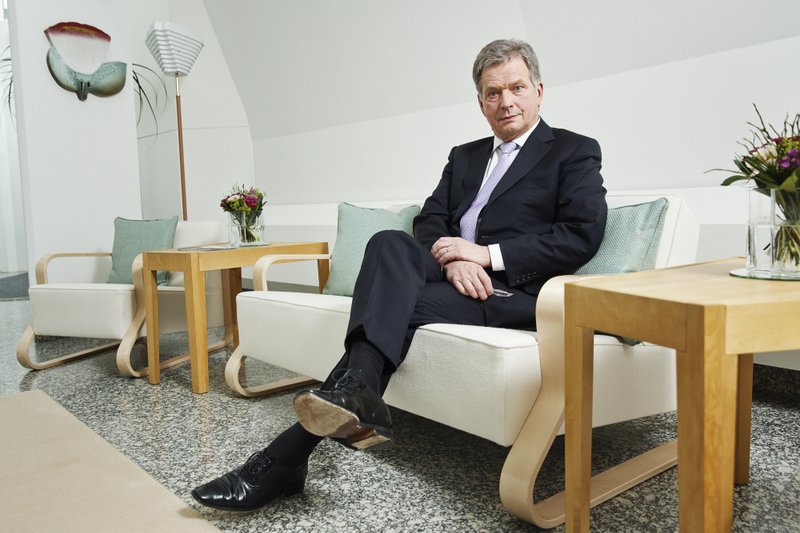Finland is urging Europe to increase NATO contributions and focus more on security as the continent grapples with political turmoil from all sides, including from within.
Once the United Kingdom has quit the European Union, Finnish President Sauli Niinisto said, the 27 nations left behind need to double down on the bloc's founding principle and give the remaining 444 million citizens what they most crave: security. Niinisto, 68, spoke Friday in an interview at his seaside residence in Helsinki.
Niinisto is head of state of the nation that shares an 833-mile border with Russia. It is EU's longest border with Russia, a country with which Finland has regular contact, frequently for security purposes.
"The discussion dealing with security is one of those elements where we have the possibility to [assure] European citizens that 'Brussels can take care of your security,' and that would be a huge message these days," Niinisto said.
The comments come as a spate of elections threatens to further upend stability in the 60-year-old EU. The bloc also is being challenged in the east by Russia and in the west by a new U.S. administration that has endorsed the U.K.'s departure from the EU, just over four years after the bloc won the Nobel Peace Prize.
As it struggles to regain the legitimacy it lost in the eyes of many of its citizens following its debt crisis, the EU faces a swell of populism and nationalism.
Niinisto said a shift away from the center in French politics in connection with elections starting in April wouldn't be "a minor issue." He also said he believes that National Front candidate Marine Le Pen won't win the presidency May 7. She has said she wants to take the euro zone's second-biggest economy out of the single currency bloc.
Niinisto warned that, after a generation of peace, there's a risk that the EU has grown too complacent to the security risks it faces. Terrorist attacks in the heart of the EU -- in Paris, Brussels and Berlin -- underscore the need for safeguards.
"In Europe we have been living in very peaceful decades, and during that time very many countries have actually a bit forgotten the security details and policy," he said. "Now it's coming back."
He also said decades of U.S. demands, reiterated by the new administration, that European members of the North Atlantic Treaty Organization foot their share of the security bill are understandable.
"If there's an agreement, surely it should be fulfilled," he said.
Finland, which has stayed out of NATO largely due to its proximity to Russia, is building closer military ties with neighboring Sweden, which is also militarily nonaligned.
Germany, Europe's biggest economy, is working toward raising its military budget to reach NATO's target of 2 percent of gross domestic product, Chancellor Angela Merkel said this month. European nations have so far refused to consolidate their defense industries or procurement, meaning the euros they do spend don't have as much clout as each dollar spent by the U.S. or every ruble spent by Russia.
"I'm sure that individuals, families around Europe, feel a bit unsafe," Niinisto said. "My thinking is that maybe the main task that the union has is to make sure for everybody that they can live in peace, that they can work in peace, that they can develop their society in peace."
Niinisto said he is in contact with Russia, Germany and the U.S.
"Finland's contacts with Russia are maybe a bit more frequent; that's because we're close to Russia," he said. "It's one of the main pillars of our security policy to keep up the dialogue."
A Section on 02/28/2017
